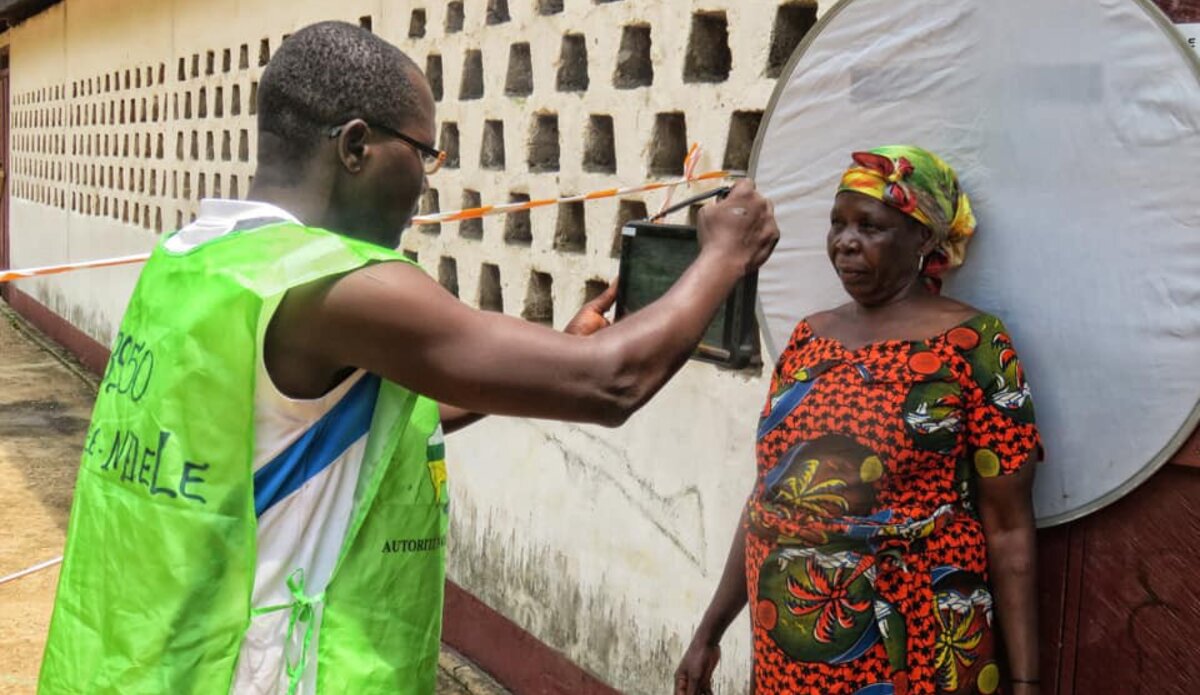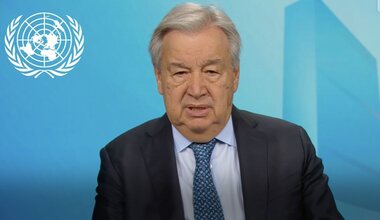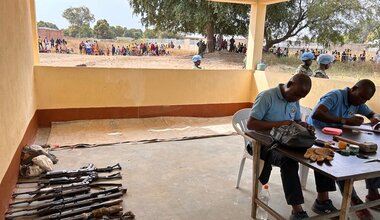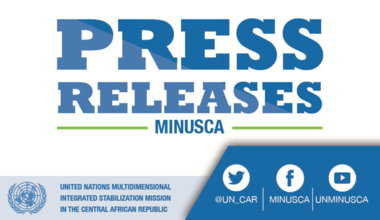The stakes of the next elections in the Central African Republic
by Arsène T. Gbaguidi, Director of the Electoral Assistance Division, UN Mission in Central African Republic
The Central African Republic remains a fragile State. After decades of armed political conflict, the return to constitutional order in 2016 was an important step for the country. Presidential and legislative elections, scheduled for 27 December, and local elections slated for 2021, offer Central Africans the opportunity to take a decisive step in their quest for lasting peace and political stability. These elections are necessary for both a definitive return to constitutional order and for participation in the democratic process. This implies that elected officials respect the duration and the terms of office and the public exercise their right to assess the performance of leaders and vote for who they feel should represent them.
A credible and peaceful electoral process will further reinforce the coming of age of the democratic culture of the Central African Republic. It will also positively impact the consolidation of peace through the creation of increased opportunities for economic investment and a sharing of the peace dividends. Crucially, in the hope of a brighter future for its sons and daughters, the Central African Republic must more than ever emerge reconciled from this electoral process.
The upcoming elections take place in the context of the implementation of the Political Agreement for Peace and Reconciliation, signed on 6 February 2019. The political process for elections is embedded in the peace process — a fundamental framework that 15 signatory parties, political parties, the Government and the broader Central African society have committed to uphold. The primary challenge is to reconcile the two processes in a mutually reinforcing manner, in order to create an environment that is conducive to the holding of credible and inclusive elections.
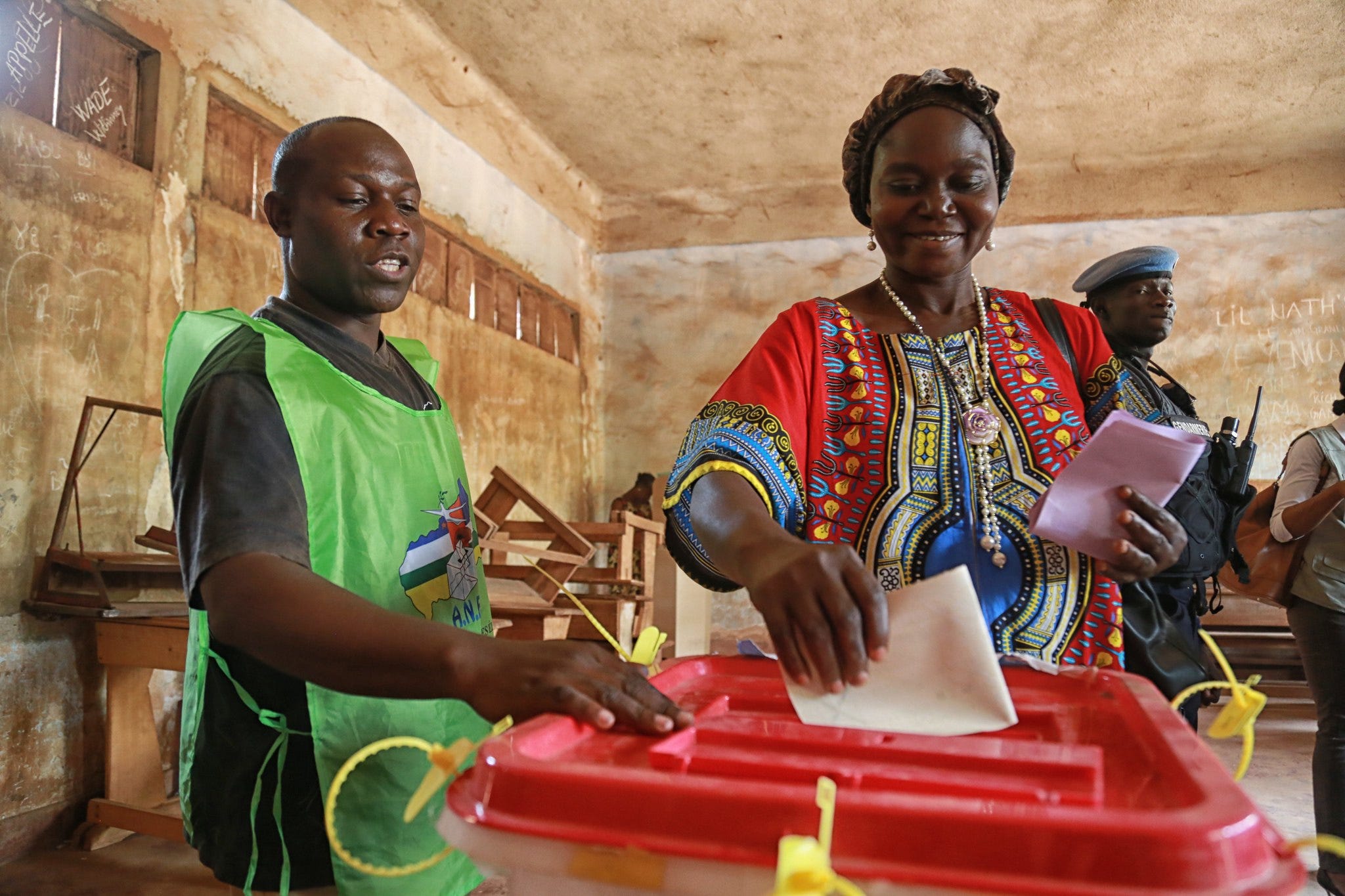
In 2019, the UN Security Council passed resolution 2499, which “urges the authorities of the Central African Republic and all national stakeholders to prepare for the presidential, legislative and local elections of 2020/2021 by ensuring that they are inclusive, free, fair, transparent, credible and peaceful, and are held within the timeframe set out in the constitution.” This same resolution asks the UN Mission in the Central African Republic (MINUSCA) to help the authorities prepare and organize peaceful presidential, legislative and local elections by providing technical, operational, logistics and security support, in particular to facilitate access to remote areas, and by coordinating international electoral assistance. Through the power of this mandate, MINUSCA was able to support all stakeholders in the adoption of an electoral code in 2019.
With elections just three months away, dialogue is in full swing within the institutions established for this purpose. MINUSCA and international partners have endlessly encouraged political dialogue as a way of ensuring that the management of the electoral process is done in a consensual manner. This dialogue continues beyond the walls of constitutional institutions. For example, the Consultation Framework brings together diverse stakeholders, while the Strategic Committee, composed of members of the Government, the National Electoral Authority (ANE), political parties, civil society, constitutional institutions and international partners, remains the forum for the peaceful management of disagreements.
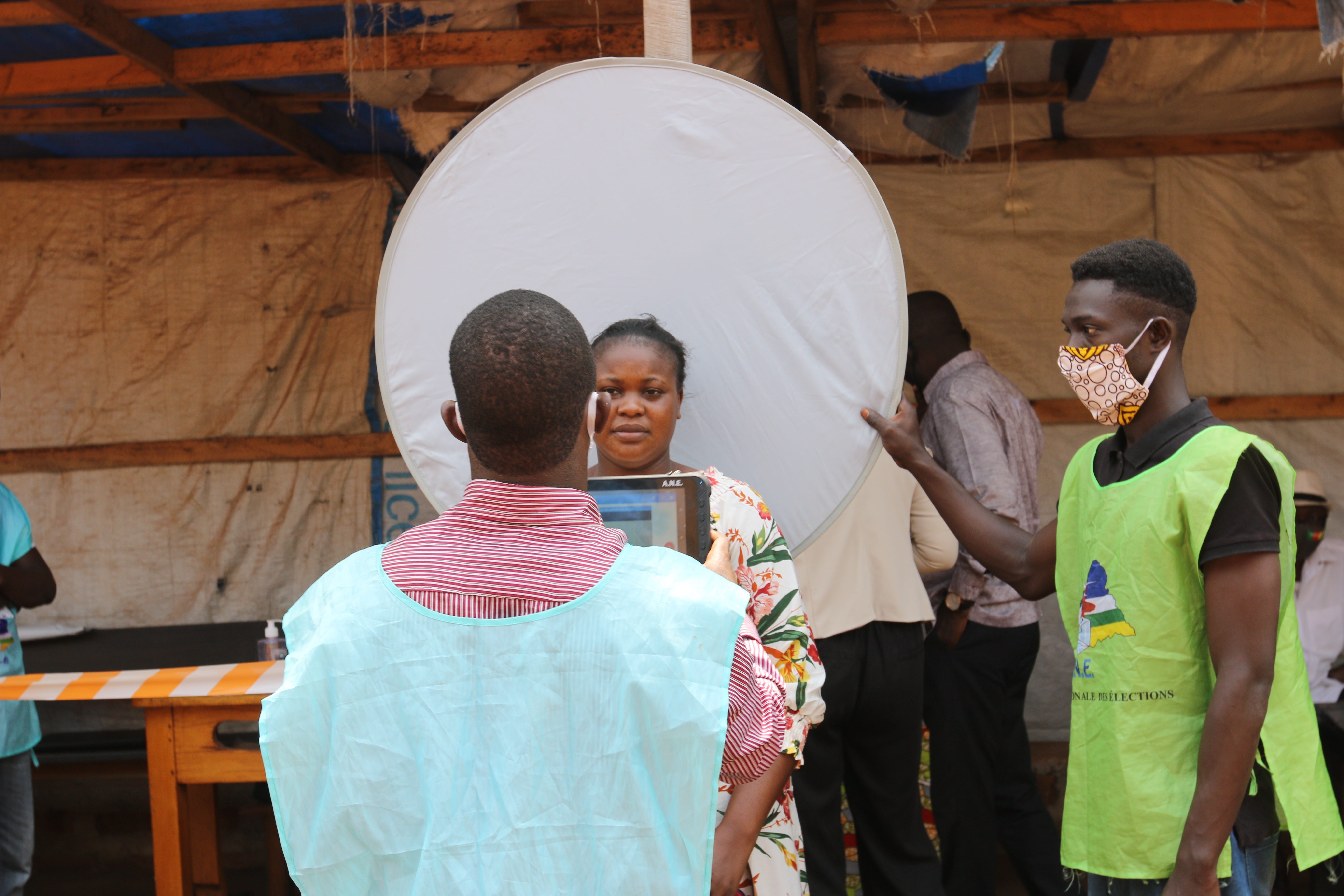 It will, however, take more than dialogue to overcome the climate of mistrust between actors. The appointment and assumption into office of the 11 new Commissioners, as well as the capacity of the ANE to complete voter registration, is more than ever necessary to restore confidence and to advance the process. The capacity of the ANE must therefore be properly reassessed in order to make the adjustments necessary to remain within agreed deadlines. Any slippage in the calendar will open the doors for suspicion, all the while exposing the process to unpredictable risks and threats.
It will, however, take more than dialogue to overcome the climate of mistrust between actors. The appointment and assumption into office of the 11 new Commissioners, as well as the capacity of the ANE to complete voter registration, is more than ever necessary to restore confidence and to advance the process. The capacity of the ANE must therefore be properly reassessed in order to make the adjustments necessary to remain within agreed deadlines. Any slippage in the calendar will open the doors for suspicion, all the while exposing the process to unpredictable risks and threats.
Despite the institutional, security and operational challenges, compounded by the impact of COVID-19, we can be pleased with progress made thus far. On 30 June, voter registration was launched across the country and is now complete in Bangui and 14 prefectures. Moreover, more than 1.8 million Central Africans have registered and are included in the centralized database. This figure does not yet take into account data from the diaspora, citizens living as refugees, and the two remaining prefectures in the West of the country. Although the data is raw, in a country of approximately 5 million people, these figures are encouraging. Central Africans can be happy to have an electoral register from which they can confidently cast their votes.
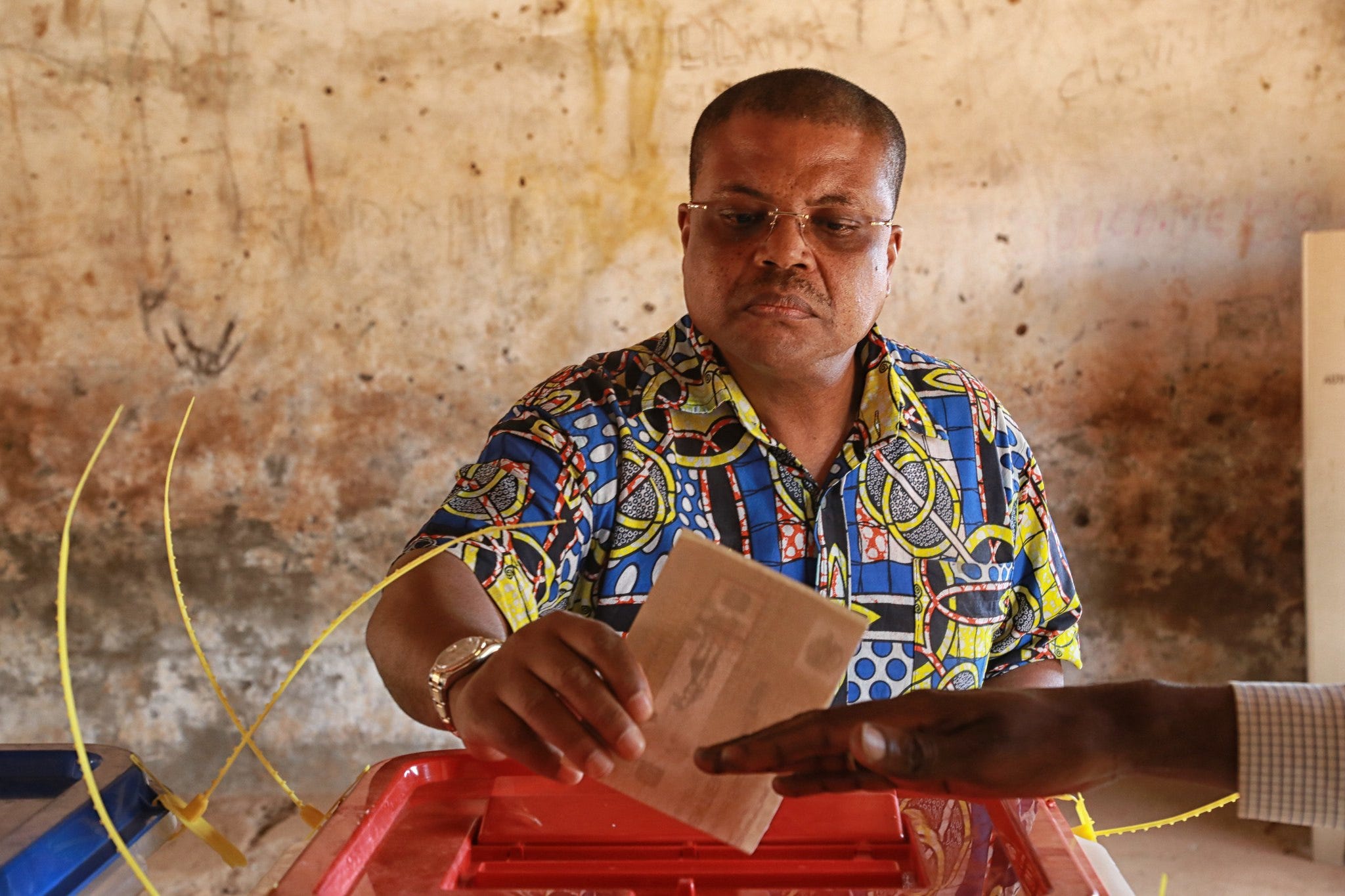 While important challenges remain, the harmonious functioning of the institutions in preparation of the elections and the dialogue initiated by President Touadéra with the leaders of the opposition, former Heads of State and other stakeholders should be commended.
While important challenges remain, the harmonious functioning of the institutions in preparation of the elections and the dialogue initiated by President Touadéra with the leaders of the opposition, former Heads of State and other stakeholders should be commended.
Beyond the elections of 27 December, it is fundamental that Central Africans participate in the local elections scheduled for 2021 to reinforce decentralized governance, suspended since 1988. Local elections respond to demands made by the population for a grassroots democracy, local governance and local development, as expressed through years of political dialogue that led to the signing of the Political Agreement.
Central Africans know how to rise to the occasion to deny the prospects of another political transition with an uncertain future. They must seize this opportunity to bring about political and institutional stability, and the consolidation of democracy. In this regard, 27 December 2020 (first round of elections) and 30 March 2021 (inauguration of elected president) constitute two important dates that determine the destiny of the Central African Republic.
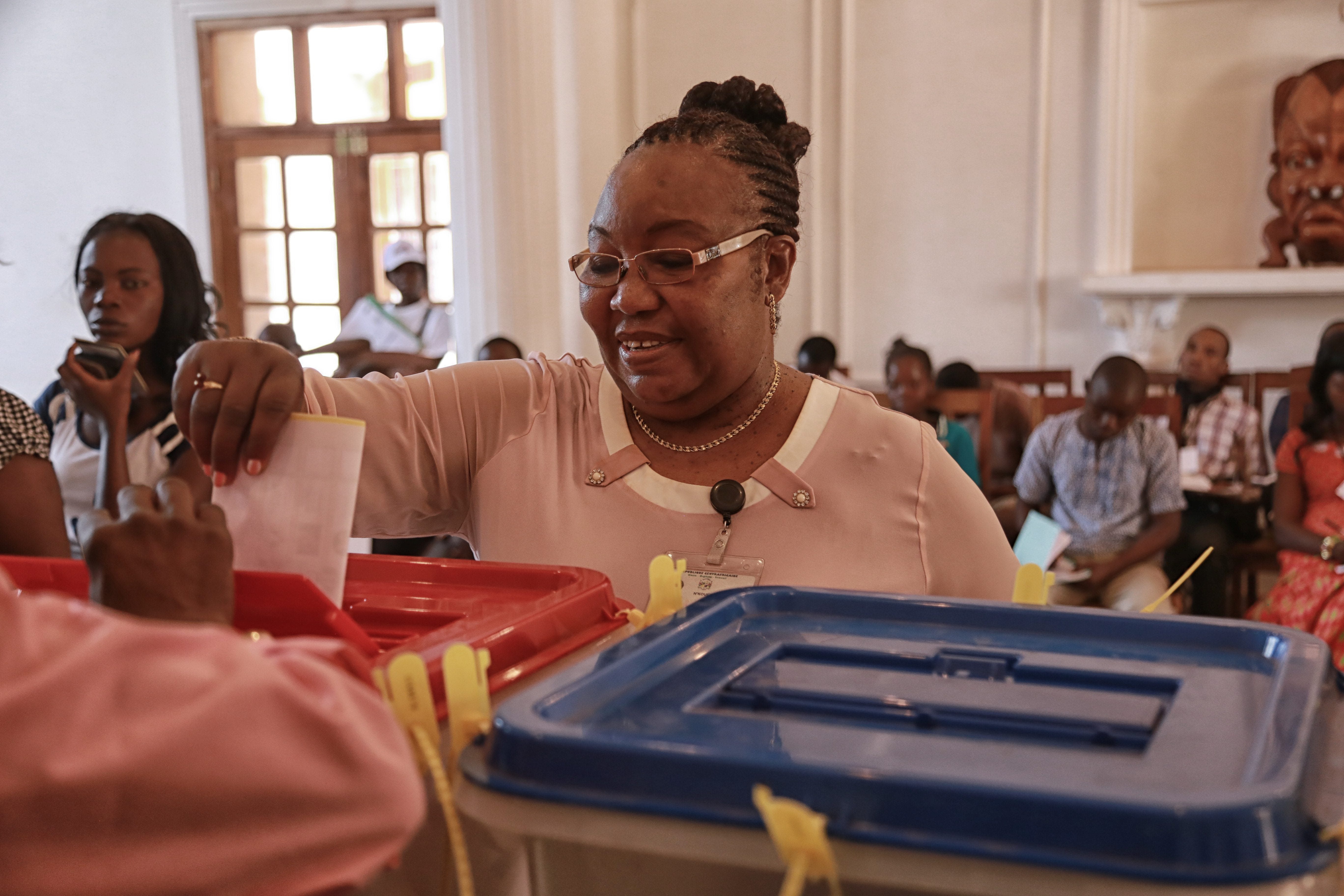 The international community is providing multifaceted support for the holding of peaceful, credible, transparent and inclusive elections. The ANE’s success in conducting electoral mapping, the establishment of local branches and the registration of voters have all benefited from the support of international partners, in particular the United Nations (MINUSCA and UNDP), the European Union, the African Union, ECCAS, France, Great Britain, Germany, the United States and Japan. Despite this mobilization, however, a financial gap of nearly US $6 million remains for the complete financing of the presidential and legislative elections. The Central African Republic needs the continued engagement and support of the international community to ensure the effectiveness of the upcoming elections, which are crucial for the consolidation of peace and the political and institutional stability of the Central African Republic.
The international community is providing multifaceted support for the holding of peaceful, credible, transparent and inclusive elections. The ANE’s success in conducting electoral mapping, the establishment of local branches and the registration of voters have all benefited from the support of international partners, in particular the United Nations (MINUSCA and UNDP), the European Union, the African Union, ECCAS, France, Great Britain, Germany, the United States and Japan. Despite this mobilization, however, a financial gap of nearly US $6 million remains for the complete financing of the presidential and legislative elections. The Central African Republic needs the continued engagement and support of the international community to ensure the effectiveness of the upcoming elections, which are crucial for the consolidation of peace and the political and institutional stability of the Central African Republic.
Arsène Gbaguidi is the Director of the Electoral Affairs Division of MINUSCA. He brings more than 20 years of experience in political governance and electoral affairs, in Central African Republic, Guinea, DRC, as well as several countries in West Africa. Prior to MINUSCA, he served as Resident Director and Director of Programmes of the National Democratic Institute (NDI) in Guinea Conakry and the Central African Republic. Mr. Gbaguidi also worked in the Electoral Assistance Division of the UN Mission in the Congo (MONUC) in the DRC and coordinated the European Union’s PRODECOM Programme on decentralization and local political governance in Benin
source : https://medium.com/we-the-peoples/the-stakes-of-the-next-elections-in-th...
 UN
UN United Nations Peacekeeping
United Nations Peacekeeping
